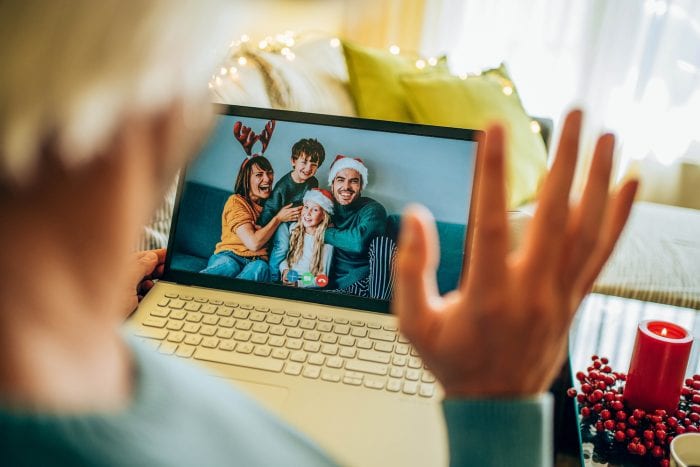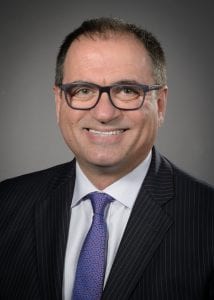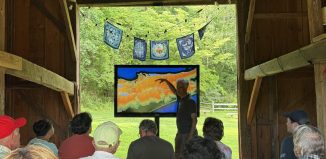’Tis the Season, and the Year, to Check on the Elderly

Before, during and after major storms, state and local officials typically urge residents to check on elderly friends and neighbors to make sure they have what they need.
While the pandemic hasn’t torn up trees or left a physical mess strewn across impassable roadways, it has triggered the kind of problems residents might have during an ongoing storm.
Indeed, after a brutal spring that included school and business lockdowns followed by a summer respite when the number of infected people declined, the fall has proceeded the way many infectious disease experts had anticipated, with a resurgence in positive tests, steadily rising hospital bed occupancy and the possibility of renewed lockdowns.

All of this is happening against the backdrop of a time when elderly residents typically welcome friends and extended family during Thanksgiving and through the December holidays. Many people have canceled or postponed seasonal rituals indefinitely, things that normally offer an opportunity to reconnect.
Holidays are a “needed process that are embedded in our culture and society and, for most, bring significant joy and purpose,” said Dr. Youssef Hassoun, Medical Director of South Oaks Hospital. “For the elderly, that is exaggerated, simply because that is their time to connect back with their loved ones.”
Elderly residents are managing, though they are feeling numerous stressors.
The mental health toll on elderly residents has increased since the pandemic began. In the first few months after the virus upended life on Long Island, the number of elderly residents seeking mental health support declined at Stony Brook, according to Nikhil Palekar, Associate Professor of Psychiatry and Director of Geriatric Psychiatry at Stony Brook University’s Renaissance School of Medicine.
In the last few months, “we have seen a significant increase in referrals our center has received for mental health services,” Palekar explained in an email.
Stony Brook has not had to increase their staffing yet, but if the demand for mental health services continues to be as high as it has been for the past couple of months, the university “will be hiring more clinical staff to provide care,” Palekar explained.
Elderly residents are trapped in a battle between the fear of contracting the virus and the impact of loneliness, which can increase the rate of depression, anxiety and cognitive impairment, Palekar added.
Indeed, the number of nursing home residents contracting the virus has increased in the country and in Suffolk County, according County Executive Steve Bellone (D) during a Tuesday call with reporters.
For people who are battling against the loneliness triggered by isolation, “our recommendation to our elderly patients is to use televideo conferencing to connect with their loved ones, peers and support groups,” Palekar wrote.
Ongoing Stress
For Baby Boomers, concerns about loneliness predated the pandemic, said Adam Gonzalez, Founding Director of the Mind-Body Clinical Research Center and Assistant Professor of Psychiatry at the Renaissance School of Medicine at Stony Brook University.
“COVID adds a whole ‘nother layer of barriers that might get in the way of people connecting,” Gonzalez said. “It’s definitely a high-stress and overwhelming time for many.”
Indeed, ongoing stress, including from concerns about COVID, can trigger cognitive stress.
“Stress can make it harder for people to think,” said Chris Christodoulou, Research Assistant Professor of Psychiatry & Behavioral Health and Neurology at Stony Brook University’s Renaissance School of Medicine. When people are thrown out of their habits, that can be “disorienting and stressful.”
‘For the elderly, [that need for holiday joy] is exaggerated, simply because that is their time to connect back with their loved ones.’
—Dr. Youssef Hassoun
A stressful situation can also reveal cognitive vulnerability for people who are suddenly unsure of themselves and their environment.
“Chronic stress changes our brains in ways that are not healthy and may contribute to lots of diseases, including those affecting the brain,” Christodoulou said.
As for what to pay close attention to when checking in on elderly residents, Palekar suggested that people listen for key words or phrases, such as “feel lonely,” “don’t like myself,” “poor sleep and appetite,” or “can’t stop worrying.” Additionally, members of a support network should pay close attention if others feel helpless, can’t concentrate, have lost interest in doing things or are tired all day.
Solutions
Christodoulou said activities like yoga and aerobic exercise can prevent and slow the decline in cognition.
Hassoun also urged residents to have an open conversation with elderly family members.
“We are very good at assuming that someone appreciates” the risks of larger or even medium-sized family gatherings, Hassoun said. People may understand those risks differently.
The South Oaks Hospital medical director suggested conversations begin not with the unknowns related to potential sicknesses or even new tests, treatments and vaccines, but rather with the knowns of what’s working. While residents may be tired of hearing it, the reality is that masks, social distancing and hand hygiene have reduced the spread of COVID-19, along with other pathogens and microbes that might spread through family contact during the holidays.
Doctors and mental health professionals urged people to be creative in their efforts to connect with others this year.
“How can we get dad, who has never enjoyed looking at an iPad, let alone using it, to find it more fun to have a zoom Thanksgiving together?” Hassoun asked.
He added that these unconventional Thanksgiving interactions could be a way to connect relatives and even children who may not participate as actively in group discussions during these holiday meals.
Residents can improve the holiday during this challenging year by making the most of each interaction, even if it’s not in the familiar personal setting.






